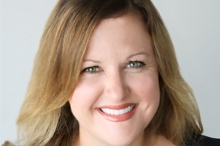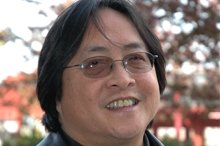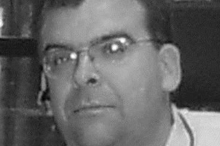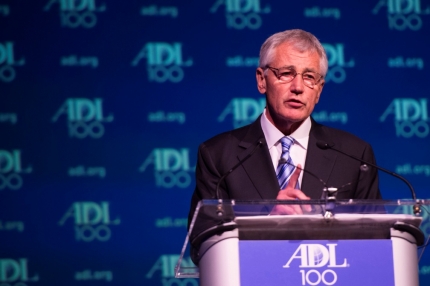Latest News
Secretary of Defense Hagel Addresses the Jewish Community
Posted by on November 1, 2013 at 6:41 PM EDTOn October 31, Defense Secretary Chuck Hagel addressed the Anti-Defamation League (ADL) at its National Centennial Commission meeting in New York.
In his keynote remarks at the gala dinner, Secretary Hagel emphasized that the Defense Department shares with ADL a strong commitment to securing our nation and to combatting hatred and bigotry – these twin goals, he emphasized, are interconnected.
Secretary Hagel discussed the effort by DoD to provide equal benefits to all eligible spouses, regardless of sexual orientation. He condemned efforts by some state National Guards to deny ID cards to same-sex spouses, and announced that he was ordering the National Guard to take action immediately to fix the problem.
In his address, Secretary Hagel also discussed United States’ commitment to Israel’s security. Declaring that “[t]he Israeli and American defense relationship is stronger than ever,” Secretary Hagel announced that the Department of Defense is providing Israel with six new V-22 Ospreys. These are tilt-rotor aircrafts that will significantly strengthen the range and effectiveness of Israeli special forces.
Finally, Secretary Hagel discussed the unprecedented challenges in the Middle East that demand an unprecedented level of cooperation between the United States and Israel. These challenges include both nations’ shared interest in preventing Iran from obtaining a nuclear weapon. By testing Iran’s intentions to pursue a diplomatic solution, Secretary Hagel echoed President Obama, noting that the United States remains “clear-eyed” about the realities and emphasizing that “words are not enough. Action must match words.”
Click here to watch Secretary Hagel’s remarks.
Learn more about DefenseA Healthy Collaboration to Improve Children’s Health
Posted by on October 31, 2013 at 12:56 PM EDTEd. Note: This blog is cross-posted from the Environmental Protection Agency.
When we travel to cities and communities large and small, we see first-hand the direct link between a healthy environment and healthy lives, especially for our country’s children. But as we observe Hispanic Heritage Month, it’s worth remembering that too many of our children, especially in minority communities, live in unhealthy environments that lead to unhealthy lives.
Scientific studies show that minority children who live, learn, and play in low-income communities are at a greater risk of environmental health problems such as asthma, lead poisoning, pesticides exposure, among others.
In 2009, approximately 70 percent of Hispanic children lived where air quality standards were subpar, contributing to higher incidences of asthma and other respiratory diseases. In fact, Puerto Rican American children have among the highest levels of reported current asthma as compared to all other racial and ethnicity groups. In the United States, nearly 1 in 10 school-aged children live with asthma every day, those most affected live in lower-income communities of color.
These health disparities are more than just hospital visits and more medicine. They also mean more missed school days, and a higher incidence of obesity due to less exercise.
That’s why improving children’s health and fighting for environmental justice are critical to the work we do. And that’s why we’re proud that EPA and the National Hispanic Medical Association (NHMA) have collaborated with federal, state, and community partners to increase awareness on key environmental health issues, particularly among the most vulnerable minority populations.
Just last year, EPA and the NHMA actively participated in President Obama’s Task Force on Environmental Health Risks and Safety Risks to Children, which launched the Coordinated Federal Action Plan to reduce racial and ethnic asthma disparities. This plan now provides a framework for federal agencies with measurable goals and outcomes to enhance environmental health among our nation’s children in partnership with our healthcare professionals.
Another key way to fight health disparities is increasing access to quality health care. The Affordable Care Act will help by connecting people to high-quality, affordable health insurance through the new Health Insurance Marketplace, Medicaid expansion, and consumer protections like prohibiting discrimination on the basis of pre-existing conditions, such as diabetes or asthma that disproportionately affect minority communities.
But if we are serious about addressing large scale public health disparities, especially for our children—we must be serious about reducing carbon pollution and fighting climate change.
Climate change is more about extreme weather. It’s also about children’s health. It’s about clean, healthy air they breathe. The carbon pollution that fuels climate change brings about hotter weather—worsening levels of pollen and smog and leading to longer allergy seasons and increased heat-related deaths, especially for children.
The urgency to act on climate change couldn’t be clearer. That’s why we’re proud to follow President Obama’s leadership to bring communities together so we can take simple steps at home and in our neighborhoods to reduce the adverse impact of a changing climate and do right by our children.
As we travel the country, we see that a healthy environment means healthy children. And as we observe the end of Hispanic Heritage Month, it’s our promise to the American people to continue fighting for cleaner water, cleaner air, and stronger public health standards for all of our children and families—regardless of who they are, where they come from, or where they live.
Gina McCarthy is the Administrator of the U.S. Environmental Protection Agency.
Dr. Elena Rios serves as President & CEO of the National Hispanic Medical Association, (NHMA), representing 45,000 Hispanic physicians in the United States. She also serves as President of NHMA’s National Hispanic Health Foundation affiliated with the Robert F. Wagner Graduate School of Public Service, New York University, to direct educational and research activities.
Learn more about Health CareHealth Care Matters at Any Age
Posted by on October 29, 2013 at 10:37 AM EDTOne of the basic necessities for the best quality of life is good health. In today’s world with so many advancements in medicine and technology, no one should be denied affordable health care. With this in mind, the Affordable Care Act will ensure that many families will have excellent health coverage without going bankrupt, in fact, most Americans will be able to get coverage for less than $100 a month. Additionally, it will help ensure that many Latina women like me will have their preventative care covered completely.
In my early twenties, I could not afford to see a doctor regularly for women’s health care. Instead, I relied on Planned Parenthood for my basic exams. Unfortunately, Planned Parenthood could not cover all my health care needs, in particular provide me treatment for Polycystic Ovarian Syndrome. As a result, I suffered through various symptoms that could have been easily treated with proper care but the cost was out of my budget. Personally, the services at Planned Parenthood were extremely beneficial but not enough. As a young Latina, with a low income I didn’t have very many options for quality health insurance. But now, the Affordable Care Act ensures that young adults are covered under a parent’s insurance plan until the age of 26 or they can purchase their own in the new Health Insurance Marketplace. These provisions are going to help many young women who suffer from the same disorder get the care that I didn’t have access to.
Finally, the need for good health care did not end with my struggles. In the fall of 2007 my future husband was diagnosed with Multiple Sclerosis. This was a concern at the time since he did not have health insurance and with the medical care he would need, we were worried that our savings would be depleted. The pre–existing condition limitations for coverage put us both in a complete panic. Luckily, at the time, he qualified for assistance on his medications which are extremely expensive. And now, the new health care law will make sure that many Americans who have a pre-existing condition are never denied care or treatment so people like my husband can afford the care that they need.
Now my husband and I are insured through his employer and enjoying all the protections of the Affordable Care Act. Fortunately, we will not have to worry about any policies that will prevent us from getting the care we need when we need it.
Edna Christine Baillif is studying Spanish and Communications/Media Studies student at Texas State University in San Marcos, TX.
Learn more about Health Care, WomenCommemorating the Fourth Anniversary of the Shepard-Byrd Hate Crime Prevention Act
Posted by on October 28, 2013 at 4:15 PM EDTEd. Note: This blog is cross-posted from the U.S. Department of Justice
“Using new tools and authorities, including the Matthew Shepard and James Byrd Jr. Hate Crimes Prevention Act, we’ve improved our ability to safeguard our civil rights and pursue justice for those who are victimized because of their gender, sexual orientation, gender identity, or disability. We will continue working to guarantee that – in our workplaces and military bases; in our housing and lending markets; in our schools and places of worship; in our immigrant communities and our voting booths – the rights of all Americans are protected.” - Attorney General Eric Holder testifying before Congress May 15, 2013
In 1998, Matthew Shepard— a 21 year old student at the University of Wyoming was robbed, tortured, tied to a fence along a country road and left to die by two men who offered him a ride home from a local bar.
That same year, James Byrd Jr.—a 49-year-old African-American man living in Jasper, Texas—also accepted a ride home from three men. They drove him to the remote edge of town where they beat him severely, tied him by the ankles to the back of a pickup truck, and dragged him to his death.
The investigation into Matthew Shepard’s death found strong evidence that his attackers targeted him because he was gay. In the case of James Byrd Jr., the three men responsible for his killing were well-known white supremacists. His brutal murder stands as one of the most nightmarish recent incidents of racially motivated violence.
But while the men responsible for the Shepard and Byrd killings were later convicted of murder, none of them were prosecuted for committing a hate crime. At the time these murders were committed, neither Wyoming nor Texas had a hate crimes law, and existing federal hate crimes protections did not include violent acts based on the victim’s sexual orientation and only covered racial violence against those engaged in a federally protected activity, such as voting or attending school.
Four years ago today, President Barack Obama signed the Matthew Shepard and James Byrd Jr. Hate Crime Prevention Act. This landmark legislation, championed by the late Senator Ted Kennedy, greatly expanded the federal government’s ability to prosecute hate crimes.
The law enables the Justice Department to prosecute crimes motivated by race, color, religion and national origin without having to show that the defendant was engaged in a federally protected activity. The Shepard-Byrd Act also empowers the department to prosecute crimes committed because of a person’s sexual orientation, gender identity, gender or disability as hate crimes.
The law also marked the first time that the words, “lesbian, gay, bisexual and transgender” appeared in the U.S. Code.
Under the leadership of Attorney General Holder, the Criminal Section of the Civil Rights Division and U.S. Attorney’s Offices around the country have used the law to address the most serious hate crimes. Over the last four years, 44 people in 16 states have been convicted under the Shepard-Byrd Act for their discrimination and crimes against others on the basis of race, religion, national origin, sexual orientation, gender identity or disability.
Just this month, the Civil Rights Division brought federal hate crimes charges against two Latino men associated with the Compton 155 street gang in California. These men attacked a 17-year-old African-American who was walking down a street in the city of Compton—striking him in the head with a metal pipe—and pointed a gun at another African-American juvenile who was present. Both attackers admitted their actions were substantially motivated by race and color.
Earlier this year, a Justice Department investigation and prosecution in response to the beating of an Atlanta man resulted in the first conviction in Georgia under the sexual orientation provision of the Shepard-Byrd Act. In this case, two men pleaded guilty to assaulting a 20-year-old gay man as he left a grocery store in Atlanta’s Pittsburgh neighborhood. Video footage of the incident showed not only physical violence but also the use of anti-gay epithets. The two men were sentenced to serve 10 months in prison on federal hate crimes charges as well as five years on state charges for aggravated assault, robbery by force, and theft by receiving stolen property and obstruction.
In addition to these enforcement efforts, the Civil Rights Division has held trainings for thousands of law enforcement officials – federal, state and local – to ensure that first responders to an assault or other act of violence know what questions to ask and what evidence to gather at the scene to allow prosecutors to make an informed assessment of whether a case should be prosecuted as a hate crime.
Four years after the passage of the Shepard-Byrd Act, and more than a decade after the brutal murders of the men for whom it was named, prosecuting hate crimes remains a top priority for the President, the Attorney General and the Civil Rights Division.
Jocelyn Samuels is Acting Assistant Attorney General for the Civil Rights Division of the United States Department of Justice.
Learn more about Civil RightsU.S. on Protecting and Promoting LGBT Rights in Europe
Posted by on October 25, 2013 at 9:54 AM EDTEd. Note: This blog is cross posted from the Bureau of Democracy, Human Rights and Labor, of the U.S. Department of State.
Prepared Remarks by Uzra Zeya at the ILGA-Europe Annual Conference 2013 in Zagreb, Croatia
October 24, 2013
First, thank you very much Evelyne and to ILGA Europe for including me in this panel. I am so glad to be here.
In response to your question, the most important thing to understand about the work of the U.S. government is that protecting and promoting the human rights of all people, regardless of sexual orientation or gender identity, is a foreign policy priority. That’s why I am here in Zagreb to deliver this message personally. The fundamental principle that guides our LGBT work is that the human rights of LGBT persons are not different than or separate from the human rights of everyone else. All people deserve to be treated with dignity no matter who they are or who they love.
Looking across the region over 2013, there is a lot to be excited about. Both France and the UK have legalized same sex marriage and more countries are taking steps to make sure that LGBT persons can make the choices that work for them and their families. It is also encouraging to see new anti-discrimination and hate crimes legislation specifically including sexual orientation and gender identity as protected categories.
But the United States remains extremely concerned about negative trends in a number of countries. The anti-gay propaganda law in Russia and the proposed law to strip gay parents of their parental rights are alarming. Laws, even when it is unclear how they will be enforced, are incredibly important. They are a statement of a country’s values and they have a teaching effect. Laws that validate discrimination, as we have seen in Russia, can lead to an increase in violence and harassment. This is particularly true when authorities don’t act to protect all of their citizens and when they fail to investigate and prosecute crimes committed by or against particular groups.
I’ve singled out Russia but, as you all know, it is not the only place where there were disturbing events in 2013. We saw too many Pride and IDAHO marches confronted by counter-protestors, or, as just happened in Serbia, canceled altogether because of the threat of violence. Throughout Europe, LGBT persons continue to be harassed and discriminated against in employment, housing, education, and many other areas of public life.
There is clearly work to be done. In the United States, we pursue this work guided by a Presidential Memorandum which lays out five main lines of effort: Decriminalization of LGBT status and conduct, protection of LGBT refugees and asylum seekers, foreign assistance to protect human rights, swift response to violence against LGBT persons, and engaging international organizations to fight LGBT discrimination.
We raise the human rights of LGBT persons in our diplomatic engagement at all levels – from the President, to Secretary Kerry, to our Ambassadors and officers at post and in Washington. Our Ambassadors and officers march proudly in Pride celebrations. Advancing equality for LGBT persons isn’t just the right thing to do; it is fundamental to advancing democracy and human rights. As societies become more inclusive, they become better partners within the global community, joined together by common values and common interests.
The U.S. also knows that change on the ground comes from within. At the State Department, same-sex partners and spouses at overseas missions enjoy the same benefits allowed by law as all our employees’ families. We’ve included a category for same-sex partners in our personnel system. It is now easier for transgender Americans to change the gender on their passport. And we’ve stated unequivocally that we do not discriminate on the basis of sexual orientation or gender identity.
We regularly engage with and support civil society organizations to ensure our work “does no harm” and supports long-term change. In December 2011, then-Secretary Clinton launched the Global Equality Fund to support civil society advocates working to strengthen the human rights of LGBT persons. The United States has partnered with eight-like minded governments – France, Germany, Norway, the Netherlands, Finland, Iceland, Sweden, and Denmark – as well several foundations to raise and allocate more than $7 million dollars for projects in over 50 countries. The Fund provides emergency legal, medical, and relocation assistance to LGBT individuals and activists; capacity building programs to civil society organizations; and, through our embassy small grants programs, short-term funding to nascent LGBT organizations. This year, we’re excited about the Fund’s focus to increase the capacity of transgender organizations in Europe to document and respond to incidents of violence targeting transgender people.
Uzra Zeya is Acting Assistant Secretary for Democracy, Human Rights, and Labor.
Learn more about , Foreign PolicyIn Honor of an Inspiring Group of Volunteers
Posted by on October 17, 2013 at 2:33 PM EDT
Ginny was recognized as a White House Champion of Change in Community Resilience and Preparedness.
Being selected as a White House Champion for Change is deeply humbling and a true honor, but it is impossible for me to accept this award without acknowledging the dedicated and inspiring people I am privileged to work with throughout the entire state of Texas. The nature and demands of community preparedness require a strong team of individuals who work together to ensure the safety of our communities, cities, regions and states when disaster strikes.
These individuals all come together to assist elected officials, community leaders and first responders whenever they are needed. Throughout the past eight years, I have had the privilege of working with a team of these dedicated volunteers and emergency preparedness professionals through the Texas Citizen Corps Program. It is on behalf of these dedicated individuals that I accept this award.
In my professional capacity, I work with 24 regional councils representing 254 counties and more than 268,000 square miles collaborating to enhance service and program delivery across the state of Texas. Due to her size, topography, diverse population and vast geography, coordinating effective and efficient programs and services can present a unique set of challenges. As a solution, Texas adopted a regional approach for preparing communities utilizing 24 regional councils of government—voluntary associations of local governments formed under Texas law to assess problems, planning needs, and the coordination of services that cross the boundaries of individual communities.
In Texas, Citizen Corps is one of the regional programs assisting communities to plan and prepare for disasters together to make their families, homes, and communities safer. The program is comprised of unbelievably dedicated and selfless individuals all with a heart to serve their neighbors. The members of Texas Citizen Corps are volunteers of all skill levels and backgrounds who come together to provide support to local fire departments, law enforcement officials, emergency medical service providers, and any community public health needs that may arise. Together we have faced wide-ranging threats of natural and mad-made events including: hurricanes, winter storms, significant flooding events, tornadoes, devastating wildfires, droughts, sand storms, extreme heat, and manmade hazards such as the recent events in West, Texas and Citizen Corps teams have been an integral part of community resilience.
The importance of communities coming together to create a plan for, respond to, and recover from any event affecting a group of people in a safe and organized manner cannot be underestimated. It is for precisely this reason that I feel so honored to work with a team whose mission is to assist regions and communities with those efforts.
To those volunteers who give tirelessly of themselves at the call of your communities, this award belongs to you. I hope you will accept my most sincere gratitude for standing by the citizens of Texas and this great nation in times of need. It is impossible to express how truly blessed we are by your willingness to serve.
Ginny Lewis is the Associate Director and General Counsel for the Texas Association of Regional Councils in Austin, Texas (TARC).
Grading and Preparing Chinatown
Posted by on October 17, 2013 at 2:31 PM EDT
Norman was recognized as a White House Champion of Change in Community Resilience and Preparedness.
Growing up in San Francisco’s Chinatown, my family and I faced many challenges related to poverty and race. As a teenager, I had a lot of energy but didn’t always know how to channel it. I could have easily taken a more destructive path, but through a summer jobs program (EOC) at a Chinatown settlement house and church, I was provided with positive and constructive alternatives. This settlement house was working to preserve 186 units of housing at the corner of Stockton and Sacramento Streets—Mei Lun Yuen Apartments—which would become the first low income redevelopment project in Chinatown. I thought every church did this type of social advocacy work, which inspired me to become a pastor and influence community development in the future.
Returning home from school one afternoon my mother handed me a letter she had received. It was an eviction notice saying we would have to vacate in 30 days. Luckily, a member of the settlement house helped us find other housing. I was also present at the eviction of elderly tenants from the International Hotel in San Francisco’s Manilatown, protesting their forced removal from their homes. Today, at Chinatown Community Development Center we continue to fight morally indefensible evictions of seniors, disabled and low income residents, many who have lived in their homes for decades. For many residents in the San Francisco community and throughout the nation, the fear of not having a place to live is a very real and pressing concern. To this day, I still remember the look of fear in my mother’s eyes as we faced eviction and possible homelessness. As Executive Director at Chinatown CDC, I work to ensure that my family’s experience will never happen to anyone again, and to eradicate those feelings of dread, despair, and hopelessness from the Chinatown community forever. Chinatown CDC continues to build and rehabilitate affordable housing and we currently have about 2300 units of housing in our portfolio to date.
Shortly after I started as Director of Programs at Chinatown CDC in 1990, I went to back to my old high school (Galileo High School) and recruited eight youth who wanted to make a difference in Chinatown. Since they were being graded every day in school they decided to grade Chinatown’s alleyways and challenge the businesses to help clean up the mess. This led to the formation of Chinatown CDC’s Adopt an Alleyway program, where AAA youth organize, recruit, and lead peers in monthly neighborhood clean-ups and alleyway beautification projects. Relying on youth to define problems, design solutions, and recruit peers to take action is the model we have used to structure all of Chinatown CDC youth leadership development programs. The youth serve as Chinatown tour guides, perform outreach and support to seniors and families living in single-room-occupancy hotels, develop recreational activities and provide childcare at monthly Super Sunday town hall meetings and provide lifesaving disaster preparedness training to monolingual Asian immigrants residents of Chinatown.
Since 2009, our youth have been active in leading disaster preparedness trainings for residents living in SROs. Our many youth programs have had a tremendous impact on safety and quality of life issues in our neighborhood. I am honored to have played a part in this extraordinary cycle of growth and success which continues to blossom with each succeeding generation of Chinatown youth.
We are so proud of the residents and youth who have become champions of change not only for Chinatown but for San Francisco and beyond!
Rev. Norman Fong is the Executive Director of San Francisco’s Chinatown Community Development Center (Chinatown CDC).
Preparing for Those “Ugly” Choices
Posted by on October 17, 2013 at 2:28 PM EDT
Scott was recognized as a White House Champion of Change in Community Resilience and Preparedness.
Being prepared is important for everyone, but it is especially important for people with disabilities, senior citizens, and people with unique needs
The Independent Living movement is based on the philosophy of people with disabilities having the right to control our lives. The right to make decisions about our needs, the barriers we face, and how to address those needs and handle those barriers. Along with those rights come the responsibilities such as planning and assuming the consequences of making choices--the good ones, the bad ones, and sometimes the ugly ones. An “ugly” choice can be choosing between sheltering in-place or evacuating with your power-chair to a general population shelter when a hurricane is bearing down on you.
Being prepared for emergencies and disasters is a logical extension of the Independent Living philosophy. Everyone needs to be prepared, but for people with disabilities living independently, it is a vital responsibility that they must make those “ugly” choices and be prepared for the consequences. Being prepared helps people with disabilities stay in control as much as possible during disasters because they have done a self-assessment. As a team, we know what our disability needs will be during most emergency situations. It is then up to us to plan for those situations so that we stay safe, in control, functional, and able to assist others around us, or help the responders trying to help us.
I want to say this again: People with disabilities can stay in control and functioning during a disaster or simple emergency if we have done our self-assessment, done our planning, gathered our resources, and executed our plans to the best of our abilities. That is a basic Independent Living stratagem and a basic Emergency Preparedness tool. Together these instruments empower people with disabilities to survive!
No plan fits everyone. This is especially true for people with different disabilities. This is where the Progressive Center for Independent Living (PCIL) comes in. We are a resource for any person with a disability, and we a resource for the Emergency Management community as well. We bridge that gap of misunderstanding and misinformation between the two communities. PCIL works extensively with first-responders through PCIL training courses. We include staff and board members with disabilities who are members of the Mercer County Community Emergency Response Team (CERT) who have been deployed for real-world emergencies such as flooding. As active responders, we operate in both communities for the benefit of all.
I started this by saying that I was honored that what I do every day is viewed in the Champions of Change context, but I view it more a as a firefighter. A task needs to be done to put out the fire and I’m doing that task, among many, to put out the fire.
Scott W. Ellis is the Emergency Preparedness Coordinator of the Progressive Center for Independent Living.
- &lsaquo previous
- …
- 51
- 52
- 53
- 54
- 55
- 56
- 57
- 58
- 59
- …
- next &rsaquo



Twitter